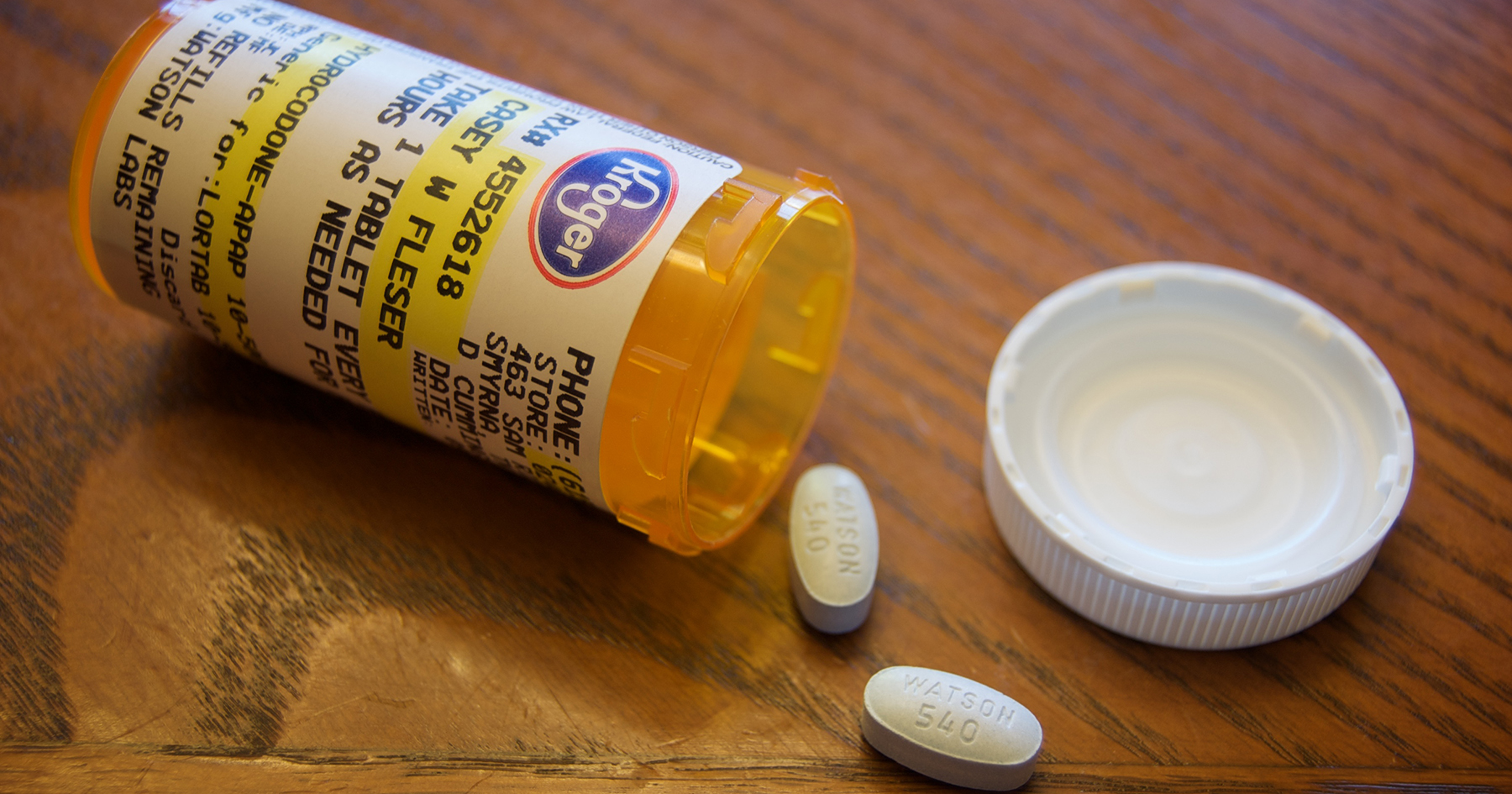Opioid Addicts Are Abusing This Common Over-The-Counter Medication

By:
A case report issued by the American College of Emergency Physicians recently revealed that opioid addicts are turning to a common over-the-counter medication to address withdrawal symptoms — with dangerous, and even fatal consequences.
The report, which was released on April 29, looked into the deaths of two people who overdosed on loperamide — the main active ingredient in the stomach medicine Imodium A-D, which has reportedly seen a surge of popularity among opioid users as a home treatment of opioid withdrawal and a recreational drug.
Poison control centers across the U.S. observed a startling 71 percent spike in loperamide-related calls from 2011 to 2014, according to a 2014 Annual Report of the American Association of Poison Control Centers’ National Poison Data System published in the journal Clinical Toxicology.
"Loperamide's accessibility, low cost, over-the-counter legal status and lack of social stigma all contribute to its potential for abuse," lead author William Eggleston, PharmD, said in a news release. "People looking for either self-treatment of withdrawal symptoms or euphoria are overdosing on loperamide with sometimes deadly consequences. Loperamide is safe in therapeutic doses but extremely dangerous in high doses."
What does loperamide do to your body?
When used as directed, loperamide treats diarrhea by slowing down the intestinal tract. “It’s an opioid agent and it helps to bind receptors in the brain and cause a similar euphoria or high,” Dr. Scott Krakower, a physician and addiction specialist, told CBS News.
But you need to take a very large dose of the drug — 50 to 300 pills — to feel these euphoric effects, Krackower stressed. That may sound like a lot, but you can actually buy 400 caplets of a generic equivalent of Imodium A-D for less than $10 on Amazon — much lower than the cost of prescription painkillers or heroin bought on the street. But these doses are extremely risky, according to Eggleston and his co-authors.
"In the overdose setting it causes significant central nervous system and respiratory depression, cardiac dysrhythmias, and death," Eggleston wrote.
High doses can also lead to kidney and liver failure, according to CBS News.
Treating opioid withdrawal.
Eggleston and his co-authors also looked into discussions about loperamide abuse on web forums. "Oral loperamide abuse was reported on Web-based forums as early as 2005, with a 10-fold increase in postings from 2010 to 2011," the study authors observed. They found that 70 percent of the posts they found described using the medication to self-treat withdrawal from opioids, while 25 percent pertained to high doses taken recreationally.
“Folks that are desperately addicted, folks that are looking to stave off withdrawal symptoms will do whatever it takes sometimes, really extreme things,” Dr. Jeffrey Reynolds, of the Family and Children’s Association, told CBS News. “So in the scheme of things, taking 300 pills is not unheard of.”
As ATTN: has previously reported, opioid withdrawal often entails excruciating physical pain, muscle aches, diarrhea, anxiety, and suicidal thoughts.
Both of the case reports describe patients who had used the drug buprenorphine, which blocks the effects of other opioids, and suppresses withdrawal symptoms and cravings, according to the National Alliance of Advocates for Buprenorphine Treatment. This also allows patients to manage their withdrawal symptoms, which can be either substituted or supplemented it with OTC loperamide.
"A 24-year-old man with a history of substance abuse being managed with buprenorphine was found unresponsive in his home, with seizurelike activity. Six empty boxes of loperamide were found at the scene," the report noted.
"Postmortem police investigation reports indicated that the decedent had been abusing loperamide orally as an opioid substitute to self-treat his opioid withdrawal," the authors continued.
The second case pertained to a 39-year old man who had weaned off of buprenorphine, the report stated:
"According to the decedent’s family, he had successfully managed his opioid addiction for several years by using buprenorphine; however, he had discontinued use approximately 3 years earlier. They reported that the patient had been self-treating his opioid addiction with an over-the-counter antidiarrheal medication after discontinuing buprenorphine."
The first patient was found in cardiopulmonary arrest, while the second "presented with 'sudden' gasping for breath followed by abrupt collapse, which is consistent with a sudden cardiac dysrhythmia," according to the study.
The opioid epidemic
The opioid overdose rate in America has nearly quadrupled since 1999. About 14,000 people fatally overdose on opioids each year, the Centers for Disease Control and Prevention reports.
 Flickr / Casey Fleser - flic.kr
Flickr / Casey Fleser - flic.kr
"As many as 1 in 4 people who receive prescription opioids long term for noncancer pain in primary care settings struggles with addiction," according to the CDC.
Opioid painkillers can be extremely habit-forming.
"The problem with prescription opioids is that they actually do work for pain initially," Dr. Anna Lembke, an addiction psychiatrist at Stanford University, said at 2014 a panel on drug abuse. "But for most people, after you take them every day for let’s say a month or more, [you] build up tolerance where they stop working so then you need more of the same drug to get the same effect and it escalates on like that."
Though medical professionals have recently asked doctors to revise prescription guidelines and monitor patients more carefully, this often means patients turn to illegal alternatives such as heroin — or abuse legal OTC medication in dangerous doses, according to Eggleston's report.
